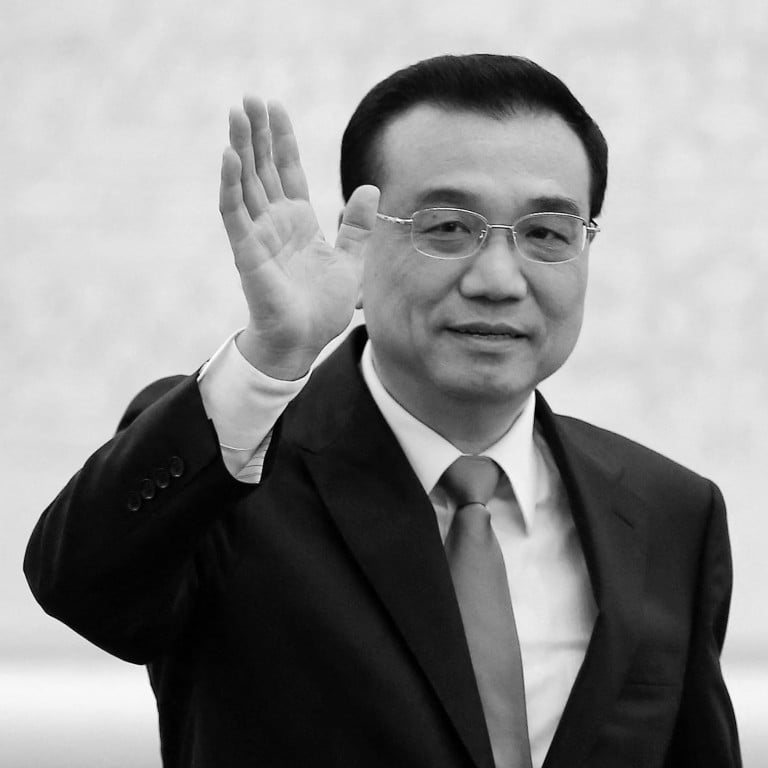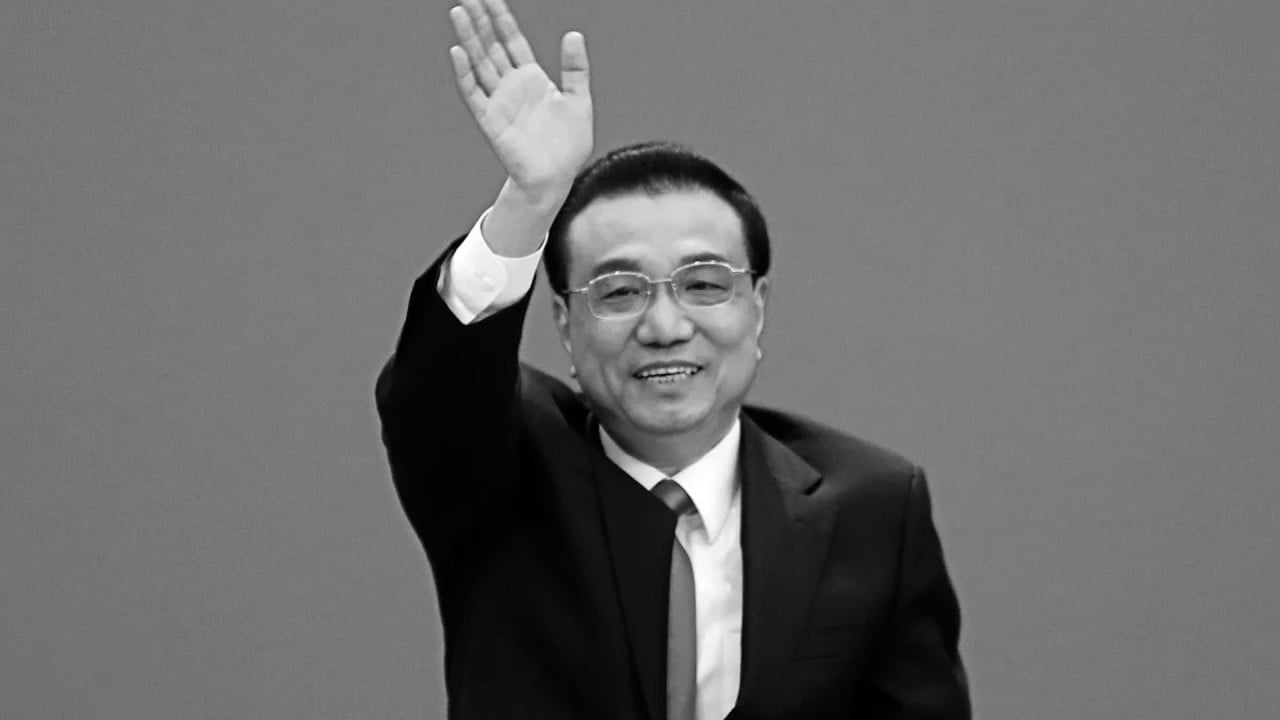
Li Keqiang: former premier had fatal heart attack during swim in Shanghai, sources say
- Two sources say Li had previously had coronary artery bypass surgery
- His body has been flown back to Beijing, pending instructions on funeral
Two sources told the South China Morning Post that Li had previously had coronary artery bypass surgery. Li retired from the party’s leadership, though he had yet to reach the official retirement age. He stepped down as premier in March this year.
Li was visiting Shanghai this week. Two other sources said Li suffered a heart attack on Thursday while swimming at the Dongjiao State Guest Hotel where he was staying. He was rushed to nearby Shuguang Hospital by his personal security and healthcare staff. State media said Li was pronounced dead 10 minutes after midnight.
A security staff member at the hotel told the Post they were told to suspend business until further notice. Another worker confirmed that Li died there, adding that the entrance was “packed with police in the morning”.
His body was flown back to Beijing on Friday. The arrangements for his funeral have yet to be announced.
The official obituary praised Li for his wholehearted support for the Belt and Road Initiative and poverty relief campaign – strategies spearheaded by Xi. He was also credited for his efforts to balance economic growth and stability.
The article stressed his “steadfast support” for Xi and said Li firmly backed efforts to build a clean party and fight corruption.
Tao Jingzhou, an international arbitrator and Li’s classmate at Peking University, said he was astonished to hear of Li’s sudden death.
“Keqiang has left us forever,” Tao wrote on X, the social media platform previously known as Twitter.
“He was a man who could not be idle in his life, who bowed down and tolerated others for the sake of his country, and it was too sudden for him to leave us.”
Li Keqiang: decades of diligence on China’s economic front lines
Jiang Mingan, a Peking University law professor and another former classmate of Li, said he was saddened by the news, saying it was “beyond the power of any words” to describe it.
It was a reaction shared by many who took to social media to pay tribute. Many who had first-hand experience of the former premier shared photos of him on the social media platform Weibo.
They included photos of his visit to Yaan in Sichuan province immediately after the region was ravaged by a strong earthquake in 2013 and his visit to a hospital in Wuhan in late January 2020. He was the first top Chinese leader to visit the epicentre of the Covid-19 pandemic when it broke out.
“It warmed my heart when Li told medical workers in Wuhan to call home every day,” one Weibo user wrote.
As China’s first premier with a bachelor’s degree in law and a doctoral degree in economics, both from Peking University, Li was mostly remembered for his contribution to China’s economy.
“Li was committed to market-oriented reforms,” said Zhu Tian, a professor of economics at the China Europe International Business School. “He was a charismatic truth-teller and a popular premier in China.”
China’s Communist Party mourns Li Keqiang’s death, praises achievements
In the year Li was sworn in as premier, Beijing approved historic reforms that would let the market play a decisive role in the allocation of resources. It included a detailed reform road map and under this process the economy continued to expand over the decade – albeit at a slower average of between 5 and 6 per cent – to approach the threshold of a high-income country.
Speaking at the National People’s Congress in March last year, he vowed that “China’s opening-up policy would not change, just as the course of the Yangtze and Yellow rivers will not be reversed”.
Tao said on Friday that Li’s support for economic reforms and opening-up came from the bottom of his heart.
In Hong Kong, many political heavyweights paid tribute to Li. They praised him for backing the city to strengthen its economic integration with mainland China and its status as an international financial hub.
Fluent in English, Li often represented China at international events, including the annual China-EU Summit. In particular, he built a strong relationship with European leaders such as former German chancellor Angela Merkel.
Several European embassies in China sent their condolences.
On X, German ambassador to China Patricia Flor described Li as “a valued partner to Germany” who positively shaped bilateral ties. Li’s last meeting with his German counterpart was in November when he hosted German Chancellor Olaf Scholz in Beijing.
“He will be remembered,” Flor wrote.
In Tokyo, Japanese Chief Cabinet Secretary Hirokazu Matsuno, the top government spokesman, said Li had “played a significant role” in bilateral relations. In 2018, Li paid an official visit to Japan, where he also joined a trilateral leaders’ meeting involving South Korea.
“We offer our sincere condolences and prayers for former premier Li Keqiang,” Matsuno said.
In Washington, US Secretary of State Antony Blinken expressed his condolences, according to State Department spokesman Matthew Miller.
Li is survived by his wife, Cheng Hong who is a respected intellectual, and a daughter.



